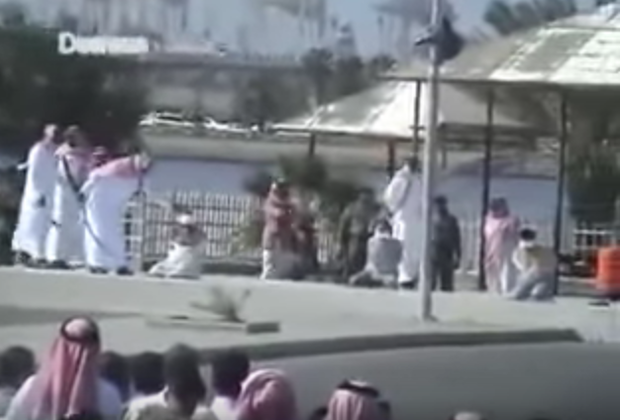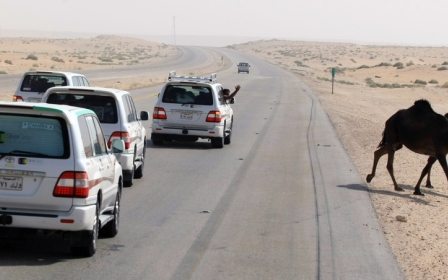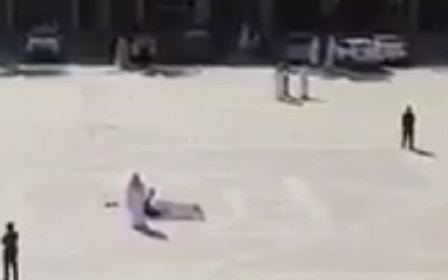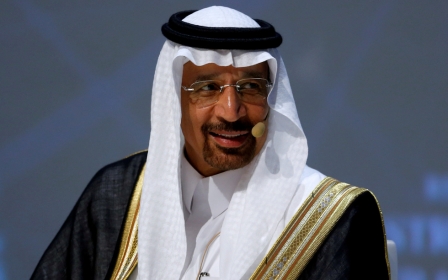'Gruesome' execution warrant casts light on Saudi death penalty

An execution warrant in Saudi Arabia was published to social media on Tuesday, providing a rare insight into how the death penalty is implemented in the secretive kingdom.
The warrant, posted to Twitter, ordered an unnamed prisoner to be executed in “Retribution Square” in the northern town of Qurayyat at 9am (0700 GMT).
Translation of tweet: Saudi Arabia returns to performing executions in public on Tuesday 9am according to a letter (top secret/urgent and important) with an accused in a drugs case after it (execution) was performed in prison
The order was signed by the local police chief Mufdhi bin Abdallah al-Khamees and it instructed the Qurayyat General Hospital to “carry out the necessary procedure upon receipt of the prisoner’s corpse” after the execution had taken place.
A doctor was also ordered to be present at the execution, which in Saudi Arabia is typically a public beheading carried out by a masked executioner with one blow to the neck with a long curved silver sword.
The doctor was required to attend the beheading to confirm the prisoner’s death.
British human rights group Reprieve said they had information the execution was carried on Tuesday as ordered.
Reprieve said the publishing of the execution warrant exposed the nature of human rights abuses in the kingdom.
“It is chilling to see the Saudi execution procedure laid bare,” Reprieve director Maya Foa said in a statement. “The gruesome details contained in this warrant only serve to highlight the shocking abuses that continue in the kingdom.”
Prior to the latest executions, Human Rights Watch reported on 19 October that Saudi authorities have executed 134 prisoners so far in 2016.
Many of those executed in Saudi Arabia are convicted of drug charges, while other crimes that carry the death penalty include murder, and less commonly apostasy, adultery and homosexuality.
Earlier this month Saudi authorities executed a prince for the first time in over 40 years, after the royal had been convicted of murdering another man during a brawl.
The execution of Prince Turki bin Saud al-Kabeer brought praise in some quarters within the kingdom, with government supporters stating the sentence demonstrated no one is above the law in Saudi Arabia.
Saudi Arabia has come under increasing criticism for abuses as the kingdom stands for re-election to the United Nations Human Rights Council.
As well as highlighting a lack of women’s rights, Human Rights Watch said on Monday that Saudi Arabia should not be allowed to sit on the council because of its ongoing war in Yemen, where its military has been accused of committing an array of war crimes.
This article is available in French on Middle East Eye French edition.
New MEE newsletter: Jerusalem Dispatch
Sign up to get the latest insights and analysis on Israel-Palestine, alongside Turkey Unpacked and other MEE newsletters
Middle East Eye delivers independent and unrivalled coverage and analysis of the Middle East, North Africa and beyond. To learn more about republishing this content and the associated fees, please fill out this form. More about MEE can be found here.




